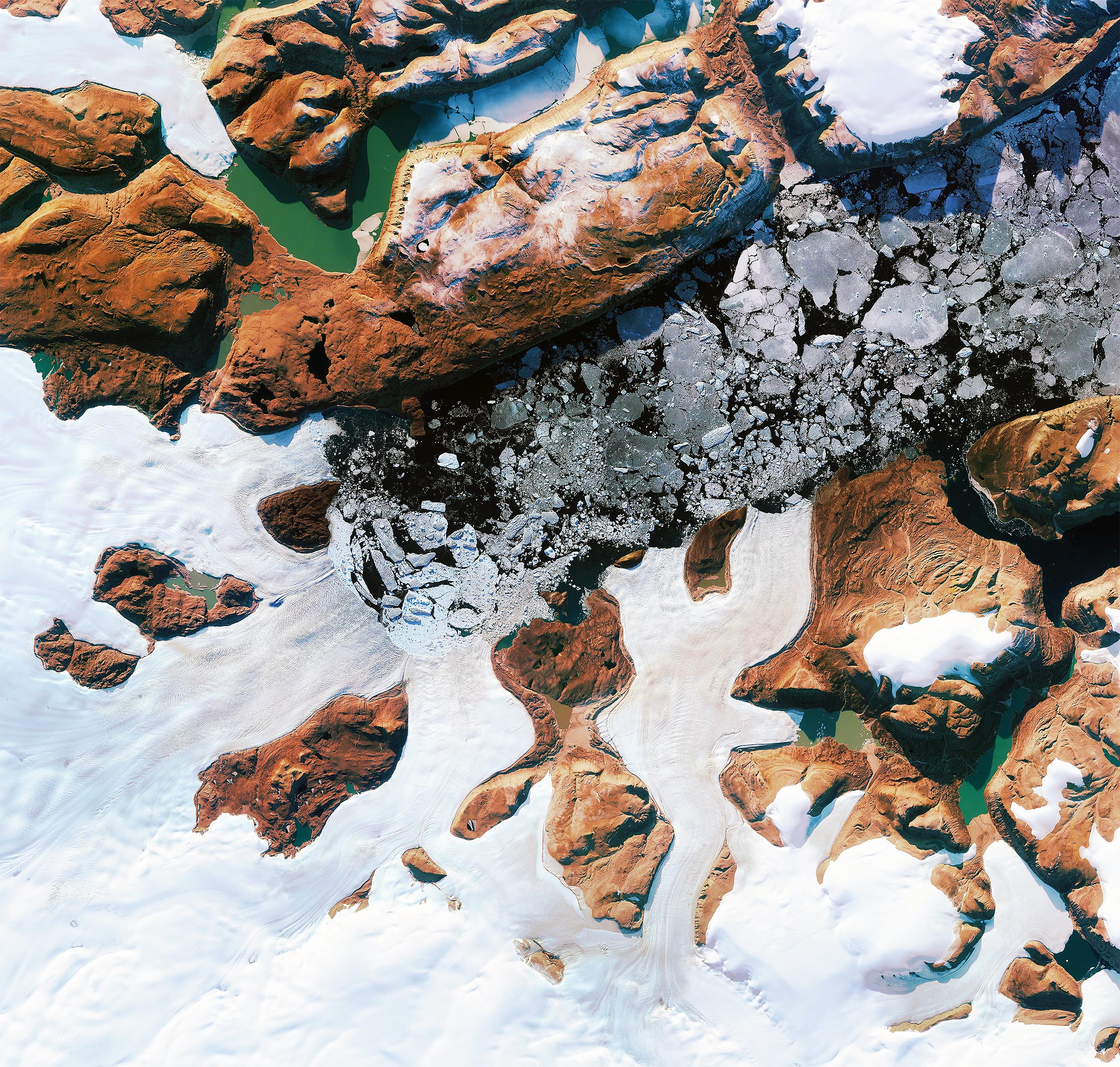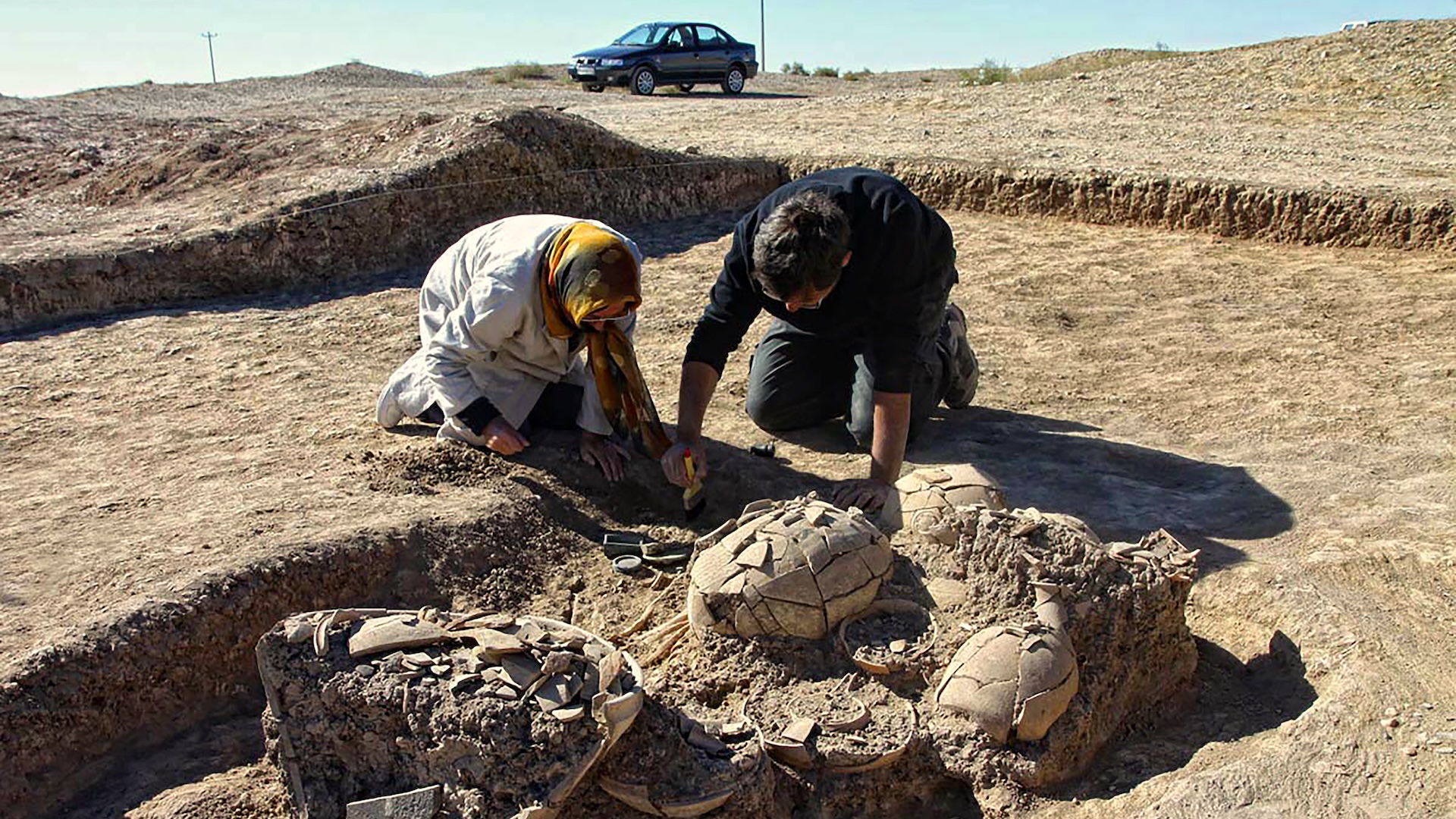A hidden lake beneath the Greenland ice sheet at Harder Glacier suddenly burst from deep beneath the ice. The water exploded upwards, cracked the thick ice above, and shot out across the surface. In just ten days, the lake released 23.8 billion gallons (90 million cubic meters) of water. That’s the equivalent of nine hours of Niagara Falls water pressure …
Read More »Science
3,000-year-old burial of elite teen unearthed in Iran, with gold jewelry and astonishing ‘scorpion’ cosmetics box
Archaeologists in Iran have unearthed the lavish grave of a teenager who lived more than 3,000 years ago, when the region was part of the Greater Khorasan Civilization. The woman died at about age 18, probably of natural causes. Her rich grave goods, including gold jewelry, indicate that she came from a wealthy family with “inherited status,” according to a …
Read More »Just a moment…
Just a moment… Enable JavaScript and cookies to continue This request seems a bit unusual, so we need to confirm that you’re human. Please press and hold the button until it turns completely green. Thank you for your cooperation! Press and Hold Press and hold the button If you believe this is an error, please contact our support team. 209.74.74.26 …
Read More »The biggest black hole ever seen? Scientists find one with mass of 36 billion suns
About 5 billion light-years away from where you’re sitting, in one of the most massive galaxies on record, there exists an astonishing black hole. It was only just measured by scientists who managed to peer through the fabric of warped space-time — and it appears to hold a mass equivalent to that of 36 billion suns. Yes, billion. “This is …
Read More »Evidence of World-Changing Comet Explosion 12,800 Years Ago Found in The Ocean
Microscopic grains of alien dust buried in the sediment at the bottom of the ocean could be evidence of a comet that exploded in Earth’s atmosphere 12,800 years ago. This hypothetical event, known as the Younger Dryas impact, was invoked to explain a sudden, 1,200-year period of rapid cooling to near-glacial conditions during a time when Earth’s climate was on …
Read More »A blood moon is coming —Here’s what you need to know about the total lunar eclipse on Sept. 7
On Sept 7, 2025, a dramatic “blood moon” will rise as Earth experiences its second total lunar eclipse of the year. Skywatchers across Asia and Western Australia will get the best view of the Sept. 7 total lunar eclipse from start to finish, but those in Europe, Africa, eastern Australia and New Zealand may still catch a glimpse of the …
Read More »Tarantula Species With Penis That Dwarfs Body Discovered By Stunned Scientists
Scientists have stumbled upon four new species of tarantulas whose males have such outrageously long genitals that they had to invent an entirely new genus to classify them: Satyrex, named after the mythological satyr—half-man, half-goat, all libido—and the Latin word for king, rex. The males of the newfound species boast palps (spider sperm-delivery appendages) that stretch up to four times …
Read More »NASA’s Webb Finds New Evidence for Planet Around Closest Solar Twin
Astronomers using NASA’s James Webb Space Telescope have found strong evidence of a giant planet orbiting a star in the stellar system closest to our own Sun. At just 4 light-years away from Earth, the Alpha Centauri triple star system has long been a compelling target in the search for worlds beyond our solar system. Alpha Centauri, located in the …
Read More »Auroras may be visible from 18 states this weekend as solar storm barrels toward Earth
Space weather experts warn that a moderate-strength geomagnetic storm could hit Earth Friday or Saturday (Aug. 8 or 9) — possibly bringing auroras to northern U.S. skies. On Wednesday (Aug. 6), the National Oceanic and Atmospheric Administration (NOAA) issued a geomagnetic storm watch and suggested that the storm is likely associated with a recent solar flare that erupted from an …
Read More »Earth Spun Faster Today. Here’s How We Know. : ScienceAlert
Earth will complete a rotation 1.33 milliseconds earlier than usual on Tuesday, August 5. That makes it one of the shortest days of 2025 at 86,399.99867 seconds long. How that happens, and how we can even measure it with such precision, might make your head spin faster too. On average, Earth physically rotates in 23 hours, 56 minutes, 4 seconds …
Read More »







